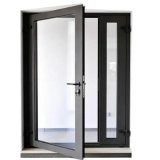What are the solutions for window leakage and water seepage?
2023-10-18
1. Check the window seal
Window seals are barriers between the window and the window frame. If the seals are aged or damaged, the windows will leak and seep. Therefore, check whether the window seals are in good condition, and replace them in time if they are found to be damaged or aging.
2. Check the window glass
If the window glass is cracked or broken, it will also cause the window to leak rain and seep water. Therefore, check whether the window glass is in good condition, and replace it in time if it is found to be cracked or damaged.
3. Check window frames
Cracked or damaged window frames can also cause windows to leak and seep water. Therefore, check whether the window frame is in good condition, and repair or replace it in time if it is found to be cracked or damaged.
4. Install rainwater outlet
Installing rainwater outlets under the windows can effectively prevent rainwater from seeping into the room. The installation position of the rainwater outlet should be below the window, about 10 cm from the ground, so that the rainwater can be effectively guided to the ground.
5. Install window waterproof strips
Installing waterproof strips under the windows can effectively prevent rainwater from seeping into the room. The installation position of the waterproof strip should be under the window, about 10 cm from the ground, so that the rainwater can be effectively guided to the ground.
6. Install window awning
Installing a canopy above the windows can effectively prevent rainwater from hitting the windows directly, thereby reducing the problem of rain leakage and water seepage from the windows. The installation position of the awning should be above the window, about 30 cm away from the window.



